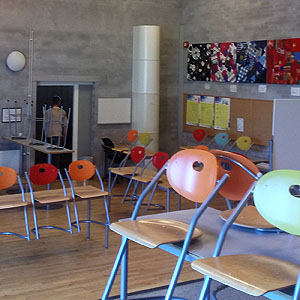Baseskoler. En kritisk diskursanalyse av teksten Baser fra Rådgivningstjenesten for skoleanlegg
DOI:
https://doi.org/10.7577/formakademisk.108Emneord (Nøkkelord):
baseskoler, tradisjonelle skoler, skoleanlegg, åpne løsninger, klasserom, kritisk diskursanalyse, tekstanalyse, definisjonsmakt, kunnskapsregimer, Kunnskapsløftet.Sammendrag
Denne artikkelen gir innledningsvis en beskrivelse av utviklingen av begrepsbruken knyttet til skoleanlegg med åpne løsninger. Disse skoleanleggene gikk på 1970-tallet under betegnelsen åpen skole her i landet, men blir i dag ofte knyttet til begrepet baseskoler. Artikkelen gjør videre en kritisk diskursanalyse av teksten Baser fra en av Utdanningsdirektoratets internettsider, som presenteres gjennom den nasjonale rådgivingstjenesten for skoleanlegg. Analysen viser hvordan den aktuelle teksten både er konstituert av, og med på å konstituere en spesiell diskurs som den hegemoniske i konkurranse med en alternativ diskurs i baseskoledebatten. Artikkelen vil også drøfte denne ensidige vektleggingen av den ene av to konkurrerende diskurser på bakgrunn av nyere forskning.
Nedlastinger
Publisert
2010-11-22
Hvordan referere
Vinje, E. (2010). Baseskoler. En kritisk diskursanalyse av teksten Baser fra Rådgivningstjenesten for skoleanlegg. FormAkademisk, 3(2). https://doi.org/10.7577/formakademisk.108
Utgave
Seksjon
Artikler
Lisens
- Forfatteren(e) beholder sin opphavs- og kopieringsrett til eget manuskript, men gir tidsskriftet varig rett til 1) å fremføre manuskriptet for offentligheten i den opprinnelig publiserte digitale form, og 2) å registreres og siteres som første publisering av manuskriptet.
- Forfatteren må selv forvalte sine økonomiske kopieringsrettigheter overfor eventuell tredjepart.
- Tidsskriftet gir ingen økonomisk eller annen kompensasjon for innsendte bidrag, medmindre det er gjort særskilt avtale om dette med forfatteren(e).
- Tidsskriftet plikter å arkivere manuskriptet (inklusive metadata) i den opprinnelig publiserte digitale form, i minst ett dertil egnet åpent tilgjengelig langtidsarkiv for digitalt materiell, som for eksempel i de norske universitetenes institusjonsarkiv innen rammen av NORA-samarbeidet.
Verket vil bli publisert OpenAccess med en Creative Commons 4.0-lisens som tillater alle å lese, dele og tilpasse innholdet, også kommersielt, under lisensvilkårene:
Dette verket må tilskrives/ krediteres på riktig måte, en lenke må gis til CC-BY 4.0-lisensen, og endringer som er gjort må angis på en rimelig måte, men ikke på noen måte som antyder at lisensgiveren støtter deg eller din bruk.



